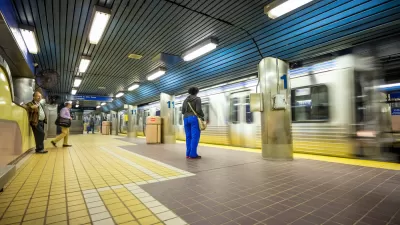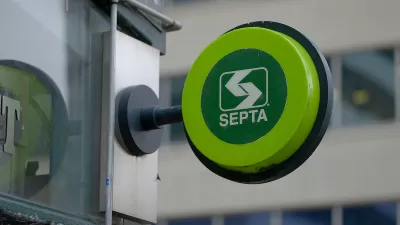Philadelphia City Council President Darrell Clarke has called for more institutional support for the goals of the Philadelphia Land Bank.
Philadelphia City Council President Darrell L. Clarke took to the pages of the Philadelphia Inquirer to write an op-ed on the state of the Philadelphia Land Bank. The opening paragraph sets the stage for a call to action:
Three years after the creation of the Philadelphia Land Bank, fewer than 50 vacant tax-delinquent properties have been acquired for reuse - out of thousands of eligible lots that depress neighborhoods and burden taxpayers.
The call to action follows:
It is past time to remove all lingering impediments and adhere to policies and procedures that expedite the assembly of land to improve neighborhoods and strengthen the tax base.
Clarke calls on the state to support the Land Bank with legislation, suggests reforms for the operation of the Land Bank, and also calls out Mayor Jim Kenney, in office for a year, for a lack of action. Then Clarke lists a Land Bank-related to-do list:
When City Council reconvenes on Thursday, I plan to introduce a resolution calling for a moratorium on lien and sheriff sales of vacant, tax-delinquent land and a review of Revenue Department and Office of Property Assessment procedures, including inconsistencies in their data. The resolution will also authorize public hearings on the Land Bank and strategies to better support balanced and equitable neighborhood growth.
FULL STORY: Clarke: Time for moratorium on sales of vacant, tax-delinquent land

Alabama: Trump Terminates Settlements for Black Communities Harmed By Raw Sewage
Trump deemed the landmark civil rights agreement “illegal DEI and environmental justice policy.”

Planetizen Federal Action Tracker
A weekly monitor of how Trump’s orders and actions are impacting planners and planning in America.

The 120 Year Old Tiny Home Villages That Sheltered San Francisco’s Earthquake Refugees
More than a century ago, San Francisco mobilized to house thousands of residents displaced by the 1906 earthquake. Could their strategy offer a model for the present?

In Both Crashes and Crime, Public Transportation is Far Safer than Driving
Contrary to popular assumptions, public transportation has far lower crash and crime rates than automobile travel. For safer communities, improve and encourage transit travel.

Report: Zoning Reforms Should Complement Nashville’s Ambitious Transit Plan
Without reform, restrictive zoning codes will limit the impact of the city’s planned transit expansion and could exclude some of the residents who depend on transit the most.

Judge Orders Release of Frozen IRA, IIJA Funding
The decision is a victory for environmental groups who charged that freezing funds for critical infrastructure and disaster response programs caused “real and irreparable harm” to communities.
Urban Design for Planners 1: Software Tools
This six-course series explores essential urban design concepts using open source software and equips planners with the tools they need to participate fully in the urban design process.
Planning for Universal Design
Learn the tools for implementing Universal Design in planning regulations.
Clanton & Associates, Inc.
Jessamine County Fiscal Court
Institute for Housing and Urban Development Studies (IHS)
City of Grandview
Harvard GSD Executive Education
Toledo-Lucas County Plan Commissions
Salt Lake City
NYU Wagner Graduate School of Public Service





























